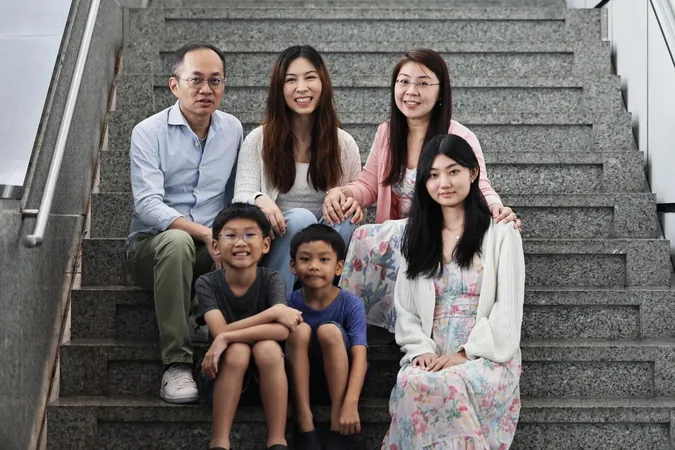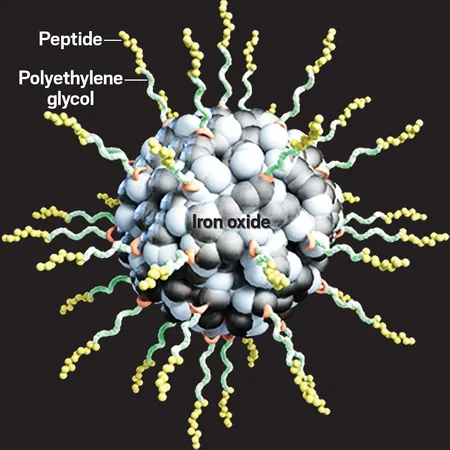
Boost in Support: Singapore Increases Monthly Allowances for Foster Parents of Teenagers
2025-08-25
Author: Li
Singapore's New Initiative for Foster Families
In a groundbreaking move aimed at enhancing the fostering system, Singapore’s government is set to increase financial support for foster families caring for teenagers, starting in October.
Financial Benefits on the Rise
Foster parents looking after teenagers aged 13 and older will now receive a monthly allowance of $1,300 per child, a $200 increase from the previous $1,100. For those caring for teenagers with special needs, the allowance jumps from $1,500 to $1,800, recognizing the significant costs associated with therapy, interventions, and transportation.
This initiative is expected to positively impact around 130 foster teenagers, as stated by the Ministry of Social and Family Development (MSF). Soon after the announcement, Minister of State for Home Affairs and Social and Family Development Goh Pei Ming emphasized the increased emotional and social needs of teenagers who have faced trauma.
Encouraging More Foster Families
At the Fostering Open House 2025, held on August 23, Minister Goh noted the critical need to expand the number of families willing to take in teenagers. He explained that the financial burden of caring for teens often surpasses that of younger children.
Shocking Statistics on Foster Care
As of December 2024, there are 530 foster children and 633 foster families in Singapore; notably, only about 130 of these children are teenagers. Alarmingly, residential care homes still house over double that number.
A Heartfelt Mission
The Fostering Scheme is designed for children and youth under 18 who have experienced neglect, abuse, or abandonment. The ultimate goal remains reunification with their birth families when appropriate.
Easier Access for Potential Foster Parents
To widen the pool of potential foster families, MSF has removed previous income and educational requirements, suggesting that the ability to provide a nurturing home isn’t measured by income or academic achievements.
Training the Caregivers
In addition to financial support, foster care workers will receive enhanced training to aid families dealing with the complexities often faced by teenagers in care. Minister Goh highlighted the intricate challenges teens deal with, from peer relationships to academic pressures.
Real Stories of Resilience and Hope
An inspiring example is that of Pauline Dominique Ching Alejado, who found solace in foster care after being placed in a children’s home at 13. Moved to the home of Jason Gwee and Irene Leow at 16, Pauline initially struggled to connect due to her past traumas.
Their unwavering support allowed her to rebuild her confidence and eventually become a university student.
Community Support Matters
The couple acknowledges the increase in fostering allowances is a positive step but emphasizes that financial aid isn’t everything. Community support and shared experiences among foster parents are vital aspects for successful fostering.
The Importance of Presence
Ms. Alejado poignantly remarked, "For a child who has experienced instability, just being present is one of the greatest gifts you can give. You don’t need to be perfect, you just need to show up." This heartfelt message encapsulates the essence of fostering and the profound impact it can have on many lives.
Both Pauline and her foster parents hope that more children will experience love, security, and the warmth of a family through such programs.


 Brasil (PT)
Brasil (PT)
 Canada (EN)
Canada (EN)
 Chile (ES)
Chile (ES)
 Česko (CS)
Česko (CS)
 대한민국 (KO)
대한민국 (KO)
 España (ES)
España (ES)
 France (FR)
France (FR)
 Hong Kong (EN)
Hong Kong (EN)
 Italia (IT)
Italia (IT)
 日本 (JA)
日本 (JA)
 Magyarország (HU)
Magyarország (HU)
 Norge (NO)
Norge (NO)
 Polska (PL)
Polska (PL)
 Schweiz (DE)
Schweiz (DE)
 Singapore (EN)
Singapore (EN)
 Sverige (SV)
Sverige (SV)
 Suomi (FI)
Suomi (FI)
 Türkiye (TR)
Türkiye (TR)
 الإمارات العربية المتحدة (AR)
الإمارات العربية المتحدة (AR)